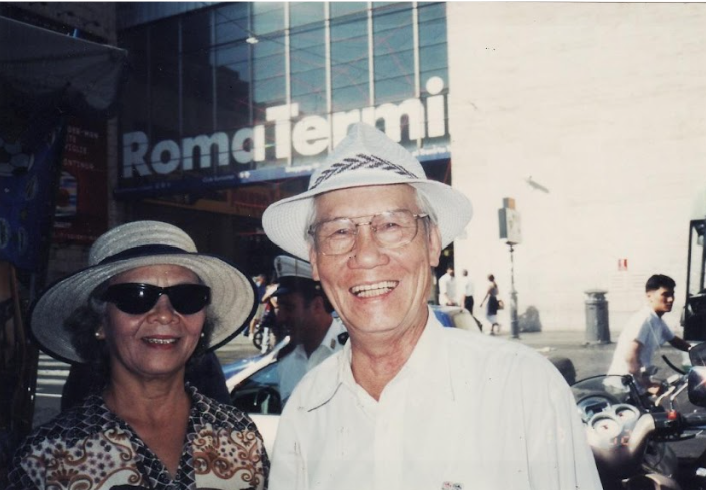Coming to America is Not Easy
- Danae Hendrickson

- Jun 20, 2023
- 3 min read
From the desk of Lee Po Cha, Executive Director of IRCO

My refugee journey began nearly 50 years ago, on a 20-day journey by foot, when I was 11 years old. In 1975 my family fled from Laos, my home country, to a refugee camp in Thailand. We stayed there until I was 14, in 1978. The journey was hard, and family members died along the way. My oldest sister lost her baby girl due to an overdose of opium. It was administered to calm crying children and prevent discovery by military personnel who searched for refugees, to shoot on sight in the jungle. My oldest sister also lost her husband, who died of malnutrition because he denied himself food to ensure his family had enough to eat on the journey. Despite these tragedies, we persisted and made it to the United States. My oldest sister, who survived the journey is still alive and well and living in Oregon. Her perseverance is one of the greatest testimonies of my family’s endurance, and to the refugee spirit in general.
Coming to America is not easy. People don’t leave their homeland because they want to, but because they have to, driven by war and persecution. They make their way here driven by two things: hope for another day to live, and the dream for a second life. At age 14, my family arrived in the United States and settled in Oregon. I had to assume adult responsibilities immediately. As a young man with proficiency in multiple languages, including English, I became the de-facto translator, interpreter, and connector for my family in most all matters. This meant I was responsible for connecting my family to any source of support that would help them succeed in their new world. My experience is not unique – young people do it all the time to help their families build a new life.
Newly-arrived refugees face many barriers to acclimating to America. While language barriers pose a huge challenge, cultural barriers pose a bigger challenge. “The American Way” can be hard to learn, and comes by learning some hard lessons. American norms around directness and assertiveness can clash with home-country norms that place greater emphasis on humbleness and indirectness. How to navigate these? It can be hard. Not learning to navigate circumstances deftly and skillfully can lead to being labeled dumb, inarticulate, and superstitious by the larger culture. For the most part, like other refugees, I found the large majority of Americans welcoming and understanding. Through our persistence and dedication to our new life and to the idea of what America represents and buoyed by welcoming people in our new home, we are able to flourish in and contribute to our new home.

In 2022, I returned to Laos for the first time since leaving it, on a trip sponsored by Legacies of War. The country is beautiful, no doubt, as I had remembered it. On the other hand, I was shocked by the continuing impact of unexploded munitions that were dropped by the millions on this small country, my homeland. These munitions continue to kill civilians, many of whom are farmers who have no choice but to expose themselves to this danger. They must farm to feed their family and earn a living. These munitions also deter investment in the country, as many corporations do not want to operate in a risky environment. Unexploded munitions also pollute the natural environment and harm and kill wildlife. As part of my trip, I detonated a bomb in an outing led by Legacies of War nongovernmental partner organization MAG International, whose mission is to identify and remove unexploded munitions. This experience was so real for me – it brought home once again, the destruction created by these weapons, and provided a visceral reminder of the continued danger to people and environment posed by unexploded ordnance.
I came away from my trip more convinced than ever, that the reasons and causes for war aside, it is critically important for people to find solutions to their collective problems that do not use violence as a means to settle differences. Our world leaders should choose peace; war is not a solution. It only creates misery, and it never really ends once it is started.
A former Hmong refugee from Laos, Lee Po Cha came to Oregon in 1978 and received his MBA from Marylhurst University. Lee has a healthy family consisting of his wife, himself and their five children. He passionately serves as Executive Director of the Immigrant and Refugee Community Organization (IRCO) due to his personal refugee experience, and he embodies the vision of IRCO as an organization committed to helping each immigrant and refugee family achieve their full potential in their new American home.



